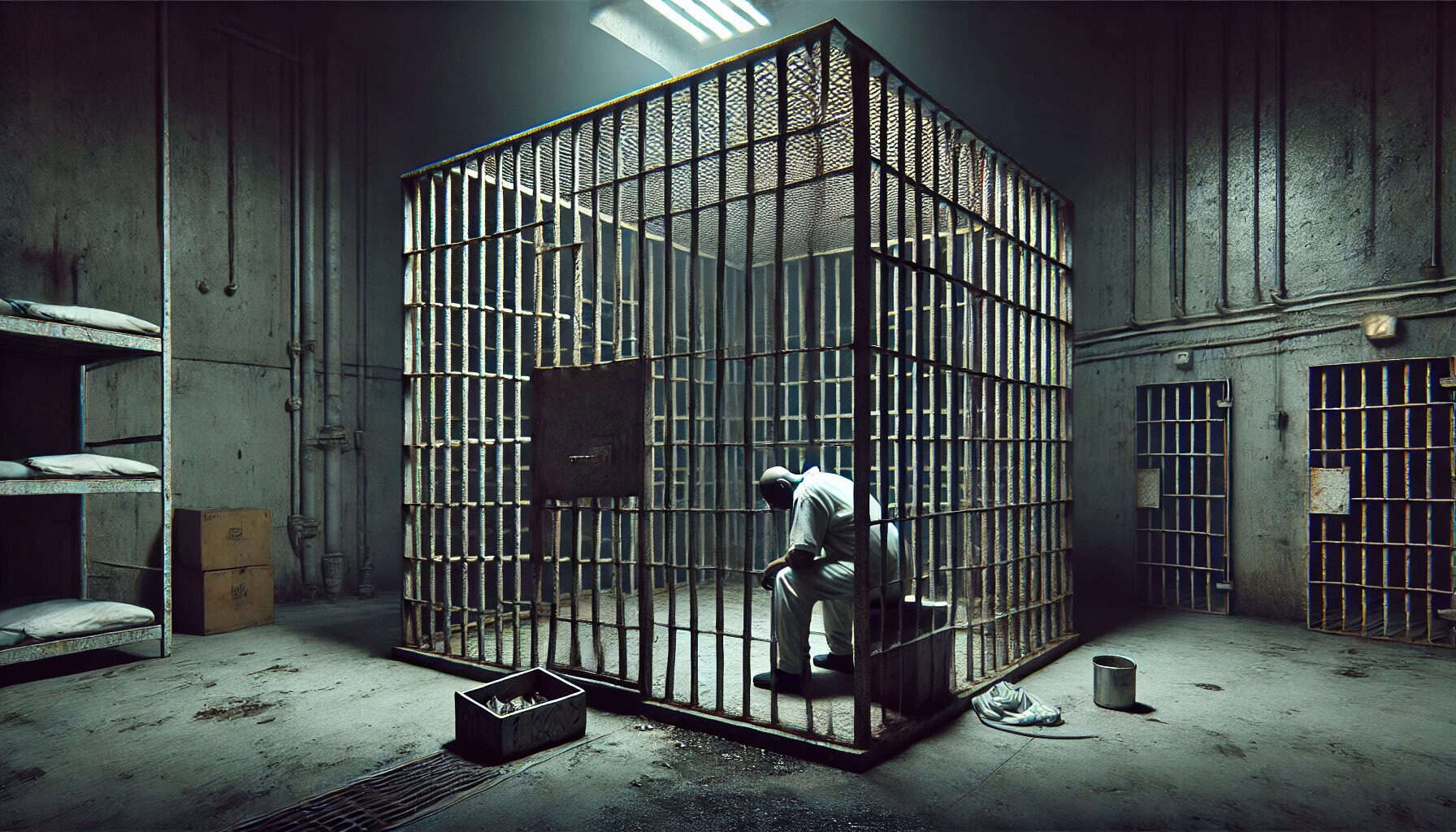In recent months, global attention has focused on the appalling conditions at the infamous CECOT prison in El Salvador. However, equally horrific conditions are taking place right here in the United States—within Georgia Department of Corrections’ Valdosta State Prison. The abuses at Valdosta reveal a disturbing parallel, and perhaps surpass the cruelty documented in other notorious prisons around the world.
Conditions Unfit for Humans
Reports from both advocates and prisoners paint a picture of inhumane and degrading conditions that should alarm anyone concerned with human rights. An advocate affiliated with CCCAN Georgia and UPROAR, has exposed that inmates at Valdosta are routinely forced to live in cages in housing units F1, J, and K. These prisoners have no access to toilets, and instead are compelled to urinate into bottles and defecate into plastic bags provided to them in crates.
An inmate inside Valdosta confirmed these appalling allegations:
“Yes, they have people living in cages for weeks at a time with urinals and are given a crate with a bag in it to defecate. The conditions are horrendous.”
To hide these cruel conditions during inspections, prison officials employ disturbing tactics:
“Whenever there are audits, they move [the caged prisoners] to the visitation room to avoid them being seen living in those conditions.”
This calculated effort to deceive inspectors and the public constitutes a serious human rights violation, reminiscent of practices often condemned in authoritarian regimes1.
Gang Rule: Institutionalized Extortion and Abuse
Adding to the systemic dysfunction and cruelty, gangs—primarily the Bloods and Gangster Disciples (GDs)—exercise significant control over the internal operations of the prison, particularly the kitchen. Prisoners report widespread gang control of food distribution, with gangs monopolizing essential food items such as fruit and selling them at exorbitant prices to inmates who have no other means to obtain these basic necessities:
“The Bloods and GDs run the kitchen and make many pay to eat fruit because they take control of everything. They only hire gang members. The staff let gang members have their way.”
The complicity of prison staff with gang activities deepens the crisis. Inmates are often forced to comply with gang demands or face severe physical harm. This systemic corruption, where staff cooperation with gang activities becomes normalized, represents a complete breakdown of institutional control and integrity.
Global Comparisons: Valdosta and CECOT
The notorious CECOT prison in El Salvador has been internationally criticized for its harsh conditions and widespread human rights abuses. Inmates are packed into cells, deprived of basic hygiene, and subjected to systemic humiliation and violence 2. But when we look closely at Valdosta State Prison, we find equally disturbing, if not worse, conditions.
Like CECOT, Valdosta (GDC) employs humiliating and degrading methods of confinement. The use of cages, absence of sanitary facilities, and enforced dependence on gangs for basic survival mirror the very atrocities for which international human rights groups condemn prisons worldwide. Yet, Valdosta remains largely unchecked and hidden from public scrutiny3.
Economic and Humanitarian Costs
The consequences of such brutal treatment extend far beyond immediate human suffering. The ongoing abuses at Valdosta contribute to increased mental health issues, physical ailments, and the long-term trauma of inmates. This reality perpetuates recidivism, escalating public costs related to medical care, legal expenses from lawsuits, and the broader societal impacts of traumatized individuals returning to communities without rehabilitation.
Georgia taxpayers bear the financial burden of lawsuits stemming from prison abuses and neglect. Moreover, the breakdown of institutional order within prisons like Valdosta erodes public safety, fostering violence and criminality that spills back into Georgia’s communities 4.
A Call for Immediate Action
Given the shocking revelations at Valdosta, immediate intervention by independent authorities is imperative. The public must demand thorough, unannounced inspections by independent bodies and human rights organizations, ensuring accurate documentation of conditions and accountability for abuses.
How You Can Help
Public pressure is a critical lever for change. Citizens must actively engage lawmakers and demand urgent reforms:
• Use Impact Justice AI to effortlessly generate effective letters and emails demanding accountability.
• Contact your local legislators directly. You can find their information here.
Sample Letter
Dear [Legislator’s Name],
As a constituent, I am outraged by the reported abuses occurring in Valdosta State Prison, where inmates are confined in cages without sanitation, forced to rely on gangs for basic sustenance, and hidden from inspections. Such inhumane conditions are unacceptable and violate fundamental human rights. Please act immediately to investigate these abuses, implement independent oversight, and ensure accountability.
Respectfully,
[Your Name]
Sample Phone Script
“Hello, my name is [Your Name] from [Your City]. I’m deeply concerned about the horrific conditions reported at Valdosta State Prison, including inmates being forced to live in cages without proper sanitation. I urge [Legislator’s Name] to demand an immediate independent investigation and accountability for these abuses. This situation is urgent and must be addressed now.”
Conclusion
Georgia must reckon with the hidden horrors within its prisons. Valdosta State Prison represents a severe human rights crisis that demands swift, decisive action from lawmakers, advocates, and the public. Only through collective pressure and unwavering advocacy can we dismantle this shameful legacy of abuse and neglect, ensuring humane treatment and justice for all incarcerated individuals.


